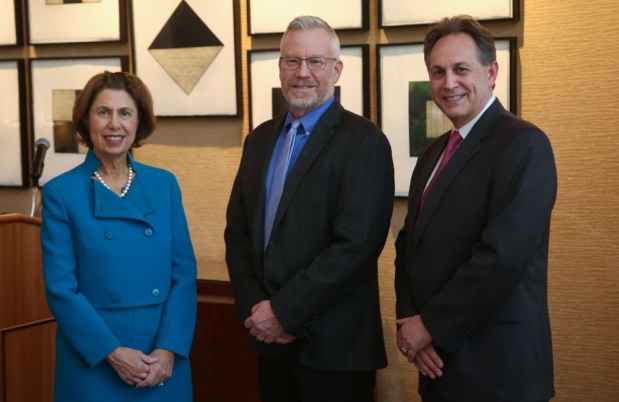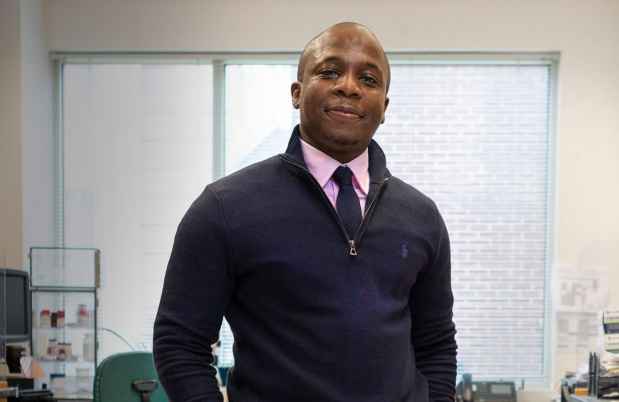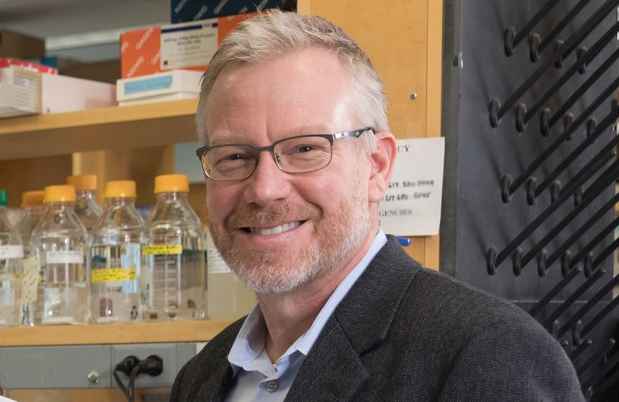As an aspiring neuroscientist in the late 1960s, Francine M. Benes, MD, PhD, worked in a neuroscience research laboratory at Creedmore State Mental Health Hospital in Queens, New York, where she had the chance to observe patients with schizophrenia and other psychotic disorders.
The young graduate student often pondered how abnormalities in their brains contributed to their problems with thinking and emotion. The building in which she worked also housed a program for postmortem brain donations from people with Huntington’s disease. Benes was intrigued by the concept of using postmortem brain tissue to study neurodegenerative diseases. Little did she know at the time that these two seemingly separate programs at Creedmore would come together to influence the course of her career.

Today, Benes, who went on to do doctoral and post-doctoral work at Yale University School of Medicine, is one of the world’s leading neuroscientists, dedicated to the study of neural circuitry in schizophrenia and bipolar disorder. As director of McLean’s Program in Structural and Molecular Neuroscience, she conducts studies using postmortem brain tissue from the Harvard Brain Tissue Resource Center, a program she also directs.
The “Brain Bank,” as it is known colloquially, was founded at McLean in 1978 by Benes’ mentor, Edward Bird, MD. Building on Bird’s early work, Benes has grown the center into what is today the world’s largest program for the collection and distribution of brain-tissue specimens in neuroscience research. Since its inception, this internationally renowned repository has collected more than 8,000 brains from individuals with a variety of neurodegenerative and psychotic disorders.
At any given time, the Brain Bank houses approximately 3,000 specimens from diseased and healthy individuals that are available to scientists around the globe. “Postmortem studies are the pivotal component of translational research that will deliver meaningful answers to what’s wrong with our patients and help us develop innovative treatments,” says Benes.
When the Brain Bank receives news of a tissue donor’s death, time is of the essence in harvesting the brain, as the organ quickly begins to deteriorate. Staff must secure consent for the donation from the legal next of kin, then make arrangements for the brain to be removed, packaged, and transported, all within 24 hours. Once the brain arrives at McLean, it is processed, studied, and prepared for use by researchers around the world.
Criteria for researchers to receive tissue are stringent. Most requests for tissue come from neuroscientists with funding from the National Institutes of Health (or its equivalent in other countries) who are conducting cutting-edge research with the hope of discovering future treatments.
“As neuroscientists, we absolutely depend upon the availability of brain tissue to do our research; therefore, we are always trying to educate family members and the general public about the importance of donation,” says Benes. “Brain donation helps neuroscientists uncover the underlying causes of these devastating illnesses. We have learned some remarkable things about the brain since the days when I was a graduate student in that lab at Creedmore. There is still so much more to discover.”
Endowed Chair Will Support Research for Years to Come
Thanks to the generosity of Donald and Charlotte Test, Francine M. Benes, MD, PhD, received one of the highest forms of recognition in academia when the William P. and Henry B. Test Professorship in Psychiatry in the Field of Neuroscience was established in her honor in 2007. The family endowed the chair at Harvard Medical School to recognize Benes’ pioneering work and to ensure ongoing support for leading-edge neuroscience research.
“Holding this chair has been a wonderful privilege for me and a tremendous support to my research,” says Benes, whose groundbreaking studies on the neural circuitry of schizophrenia and bipolar disorder began at McLean in 1981.
The Tests have been hospital donors since the early 1990s, when they established a $1-million endowment to support research on schizophrenia.
Benes has earned many accolades during her career, including election to the Institute of Medicine of the National Academy of Sciences and the Lieber Prize for Outstanding Achievement in Schizophrenia Research from the National Alliance for Research on Schizophrenia and Depression.
Media Requests
Journalist or member of the media? We are available 24/7 for media requests.



